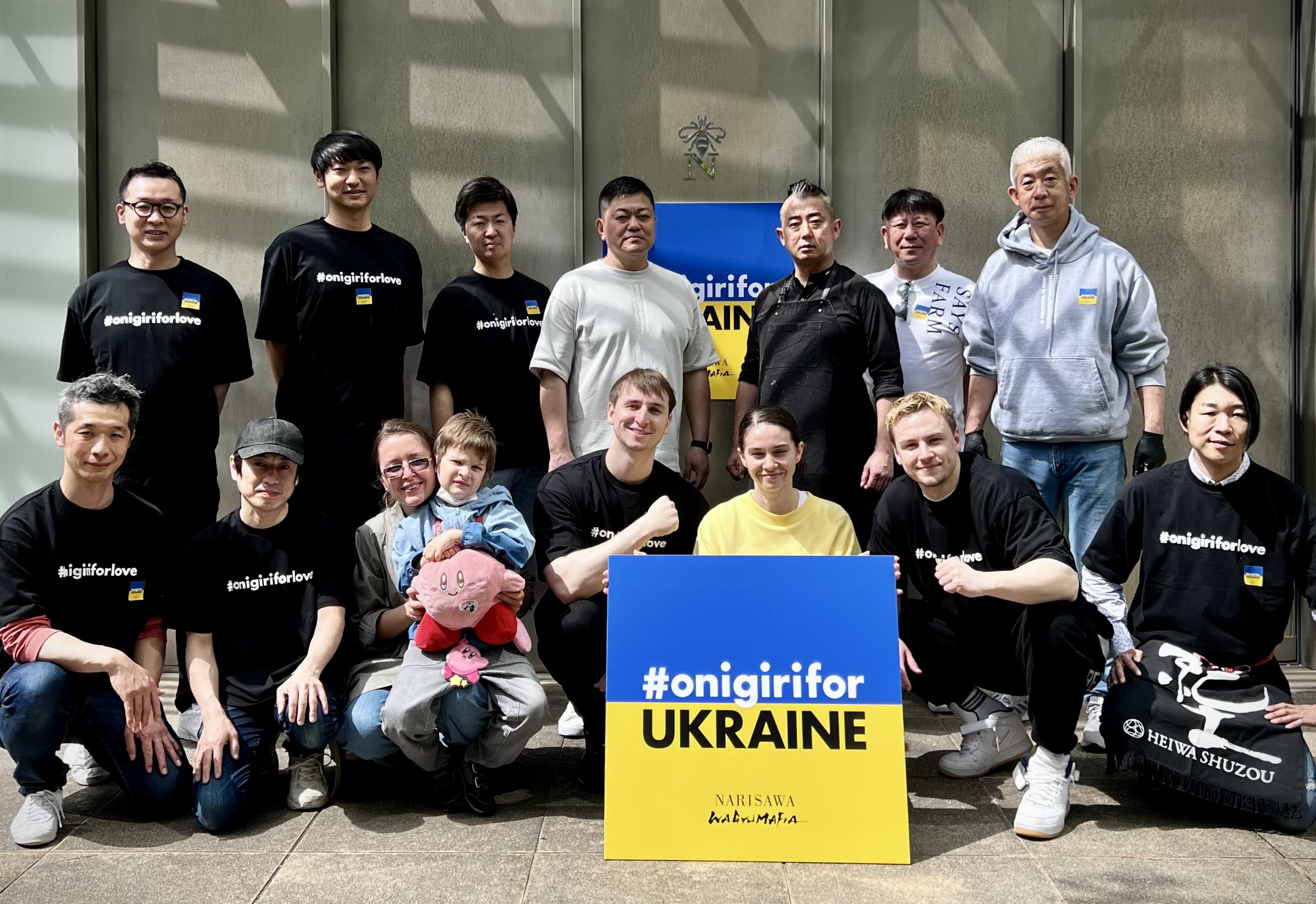Just after dawn on April 11, dozens of volunteers milled around the entrance of Narisawa, a long-running, two-Michelin-starred restaurant in Tokyo’s Aoyama district. None had come to eat — before long, they were busy steaming rice and handcrafting thousands of onigiri (rice balls) for the crowds that would soon arrive.
Led by Yoshihiro Narisawa, head chef of the eponymous restaurant, and Hisato Hamada of the cultishly popular Wagyumafia joints, the volunteers included representatives from 13 sake, wine and shōchū (distilled Japanese spirit) producers. Combined, the group had been working together since last year on monthly Onigiri for Love events.
Those gatherings were meant to benefit health care workers impacted by the pandemic in Japan. This day’s event— Onigiri for Ukraine — made clear the new beneficiaries.


















With your current subscription plan you can comment on stories. However, before writing your first comment, please create a display name in the Profile section of your subscriber account page.